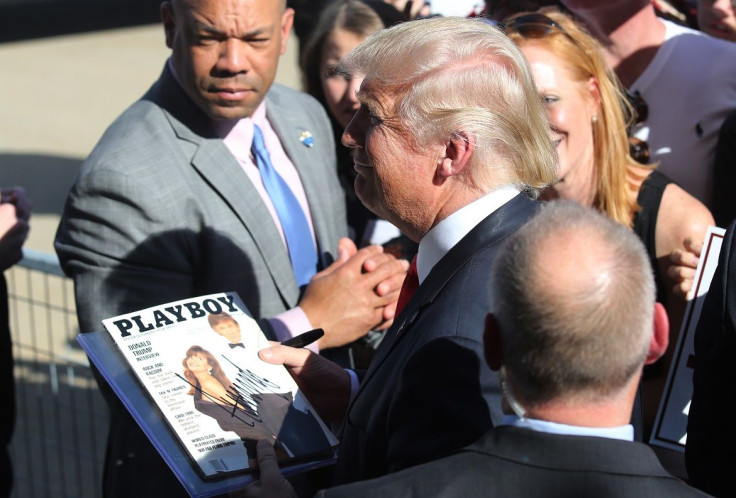Hugh Hefner’s son: Donald Trump’s Playboy cover is an ‘embarrassment’

Hugh Hefner’s son is not a fan of Donald Trump. The US president’s 1990 Playboy cover is making the rounds online following the magazine mogul’s death. Cooper Hefner calls the cover an “embarrassment.”
Last month, Cooper, 25, tweeted Trump’s Playboy cover just to say that he was embarrassed about it. The cover sees a younger Trump staring at the camera while a female model looks adoringly at him.
“Why am I embarrassed about this cover? Because we promote a philosophy that encourages ALL individuals to choose the life they want to live,” Cooper wrote. “If the 1990 team at Playboy would have known Trump’s platform than (sic) the President would have never found his way onto our cover.”
Why am I embarrassed about this cover? Because we promote a philosophy that encourages ALL individuals to choose the life they want to live. pic.twitter.com/jNGmgWuSrk
— Cooper Hefner (@cooperhefner) August 24, 2017
If the 1990 team at Playboy would have known Trump's platform than the President would have never found his way onto our cover.
— Cooper Hefner (@cooperhefner) August 24, 2017
If Cooper’s meaning wasn’t clear enough, he also reiterated the sentiment to the Hollywood Reporter in his interview last month. He said there was a “personal embarrassment” because Trump had been on their cover.
It was widely speculated that Hefner and Trump had a good relationship, but if the American leader held Hefner in high regard, it was not mutual for Hefner. “We don’t respect the guy,” Cooper said, apparently speaking on behalf of his father.
Hefner reportedly had a falling out with Trump during his presidential campaign. As Mashable notes, although the reason was unclear, it may have something to do with the Republican’s courting of the Christian right. Hefner, a democrat, founded Playboy in part to counter Christian conservatism.
Hefner was a long-time defender of LGBT rights. Even when the magazine was still in its infancy stage, he published a controversial short story from sci-fi author Charles Beaumont that featured reversed homophobia.
“The Crooked Man” told the story of a dystopian future where homosexuality was normal and heterosexuality was outlawed. It was rejected by other magazine as it was such a divisive topic. Hefner agreed to run it in Playboy, which was just two years old in 1955.
The magazine, as expected, received letters of outrage at the short story. Hefner wrote in response, “If it was wrong to persecute heterosexuals in a homosexual society, then the reverse was wrong, too.”
Hefner died at his Los Angeles home on Wednesday. He was 91.





















